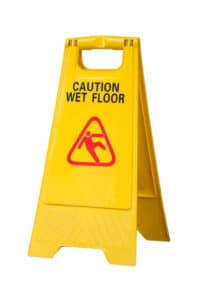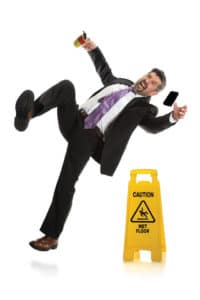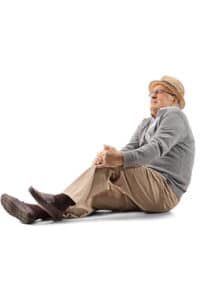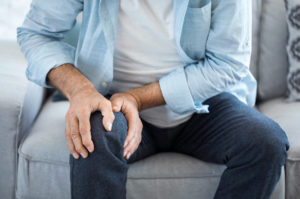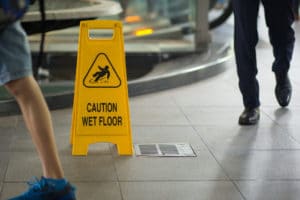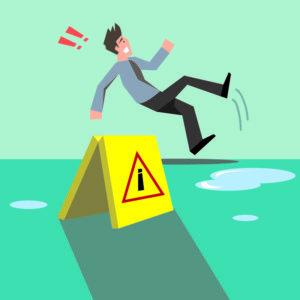Injuries From Falling Down Stairs

Every year around a million people in the US are injured falling down stairs.
A person will make a mistake and miss a step.
Not paying attention or going too fast down the stairs can cause a fall.
There are many other times that there was negligence of another that caused a person to fall.
In some cases, there may be more than one party responsible.
Either way falling down the stairs can cause serious injury.
Call Richard Harris For Help
If you are injured on a staircase due to the negligence of another it is important to have an attorney.
Injuries can lead to all different types of expenses.
Medical costs, lost wages, and pain and suffering can be devastating.
Bills can add up fast. Lost work and wages can create financial stress.
Pain and suffering can be just as costly.
This can include both physical and mental pain.
Once we take a look at all the facts, we can than determine what to do next.
If we can prove that you were injured due to another’s negligence we will fight to win.
This means putting together a case that can get you the maximum compensation.
At Richard Harris the first consultation is always free.
Injury Statute of Limitations in Nevada
After any injury it is important to get the help of a trusted personal injury lawyer.
Getting to work on your case as soon as possible is recommended.
The state of Nevada has a two (2) year Statute of Limitations on personal injury lawsuits.
This means that you have to file the claim within two (2) years of the time of the accident and injury.
If you have any questions concerning your accident, give us a call.
We have years of experience dealing with falling down the stairs injuries.
We are here to help!
Common Reasons for Falling Down Stairs
Going up and down the stairs can be hazardous.
Stair cases come in all styles.
There is always a high chance that there will be some type of injury if you fall.
Injuries are usually worse when going down the stairs than up.
Remember to always pay attention and stay aware of the dangers.
Clutter – If there are boxes or objects on the stairs a trip and fall can occur. Always look for any kind of items on the stairs. Maneuvering around them can be difficult. Management or property owners can be held responsible if there is a fall. Anytime there is anything on the stairs it must be removed. This could happen anywhere. At an apartment complex, condo, or any business. Providing a safe environment for employees and customers is important.
Poor Lighting – If there is dim lighting or light bulbs that are out a fall can occur. Lights must be provided in stairwells. If the bulbs go out, they must be replaced in a reasonable amount of time. Leaving stairs without the proper lighting can lead to serious injury. Inadequate lighting will make it much easier to miss a step. Low watt lighting will affect the persons visibility. Lights need to be checked regularly.
Damaged Steps – Steps that a poorly designed can cause falls. Having steps that are too small can lead to trouble. Steps that are made of slippery material can be extra dangerous. When installing stairs, it is vital that they are safe. If there are missing or damaged steps it can be hazardous. Cracked steps can cause a person to trip and fall. If the steps are made of wood, they can become warped or moveable. There are a lot of ways that steps can get damaged and cause injury.
Faulty Handrails – The handrails can get loose. Some rails are attached to the wall. Others may be part of the staircase. Handrails are known to get loose over time. They often will need to be tightened as screws and bolts can wear out. Proper maintenance is required for their safety. If we go to grab a handrail, we usually trust that they are attached safely. This is not always the case. Handrail accidents happen all the time. Handrails can also break and crack from too much weight. When working correctly they can help us get down the stairs safely. Everyone uses these handrails especially the elderly. If the handrail fails a fall down the stairs can be even be fatal.
Slippery Stairs – This can really catch an unsuspecting person off guard. Any liquid that gets on the stairs can cause an accident. A business or property owner must always be on the lookout for slippery stairs. Stairs must be checked regularly in order to avoid tragedy. Outdoor steps can be just as dangerous as those indoors. Mold, dirt, and mildew can make for slippery steps. Cleaning the steps can be helpful in reducing the chances of a slip and fall down stairs.
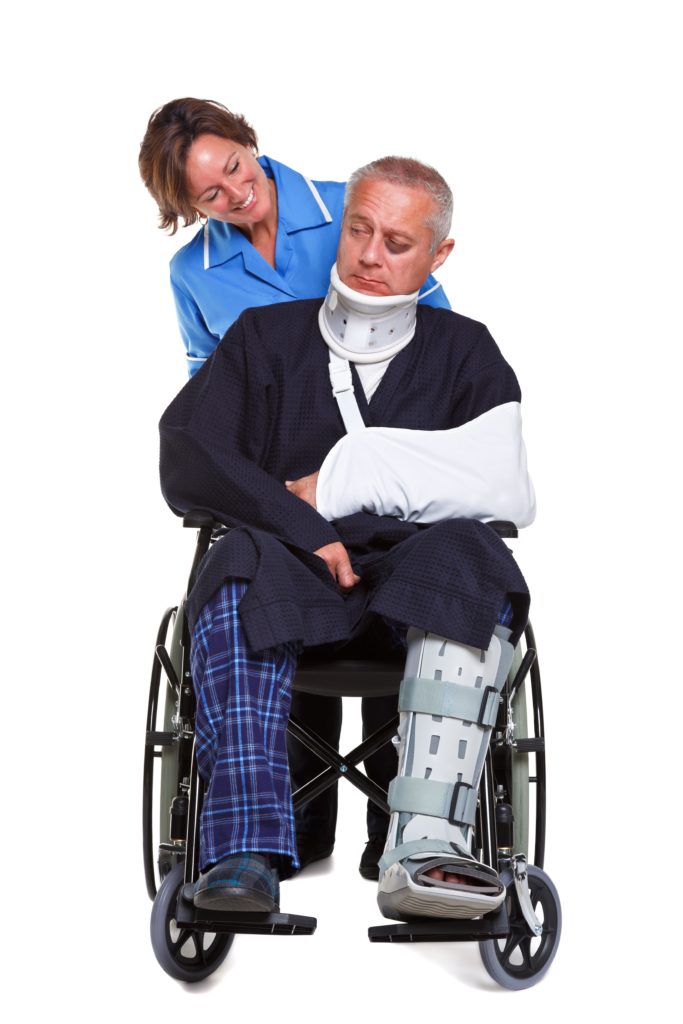
Injuries From Falling Down Stairs
Anytime there is a fall down the stairs there is a high probability for injury.
Injuries can range from mild to severe.
There is a chance that the injury can be life altering.
In worst case scenarios the injuries can be fatal.
Injuries and medical bills can be expensive.
The person or party responsible for the injury should be held liable.
Some of the more common injuries our law offices see includes;
- Ankles and Knees – Turning an ankle or twisting a knee is one of the more common injuries. Injured tendons or knees often need rest and time to heal. Sprained ankles can put you out of commission for a while. In severe ankle and knee injuries surgery may be needed. If you have a job that requires moving around a lot you may have to take some time off.
- Legs, Arms, and Hip Fractures – Legs and arms can break in a stair fall. If you take a fall down the stairs you may put out a hand to brace the fall. This is where an arm, wrist, or hand can break. A hip hitting the stairs is at risk for a fracture. All these injuries are painful and traumatic.
- Back – Hitting the back on a step can cause serious injury. A herniated disc happens by tearing the tendons between the vertebrae. A broken vertebrae is even worse. An injury to the back and spine can be life changing. There is always a chance that there could be a long-term injury. Paralysis will need long term care.
- Head Injury – Taking a tumble down the stairs and hitting your head can do major damage. Traumatic Brain Injury (TBI) can leave permanent damage. Skull fractures can be serious. Symptoms of TBI include; headaches, dizziness, vomiting, and memory loss. Head injuries will need immediate medical attention. 911 and a trip to the ER are often involved in a stair fall head injury.
Where Do Stair Fall Injuries Happen?
Everywhere there are stairs.
At homes, schools, apartments, public spaces, walkways, and parks to name a few of them.
The maintenance of the stairs will often play a role in the accident.
Property owners and management companies will be to blame if there is not the proper safety.
Hazards that are neglected are a danger.
If the stairs are messy and ignored they can be held liable for the injuries caused.
How To Prevent a Fall Down the Stairs
Check Handrails – Before you make your way up or down the stairs check the handrail. The handrail is an excellent safety feature if it is fastened and secure. The problem is they can be loose and put you in danger if not properly functioning.
Check For Slippery Surface – Check the stairs to make sure they are not wet. Make sure that carpet or nonstick features are securely fastened to the stairs before going.
Check For Debris and Clutter – Always make sure that the stairs do not have any items or debris on them before stepping. Taking a step on a loose item can take you down.
Do Not Carry with Two Hands – It is dangerous to use both hands to carry something up or down the stairs. If you slip or trip you will have no way to catch yourself and will fall down hard.
Take Your Time – Look before you step. Take your time to get safely where you are going. Skipping stairs and moving too fast can be disastrous.
Falling down the stairs can be painful. It can happen in the blink of an eye when you least expect it. If you or a loved one was injured in a stair falling accident call Richard Harris. We will take on the insurance companies, property owners, and anyone else that was responsible for your injury. After a stair fall injury, you will most likely need time to heal and recover. Our attorneys will work on the lawsuit while you focus on getting better. Contact us by phone, email or walk in the office.





















